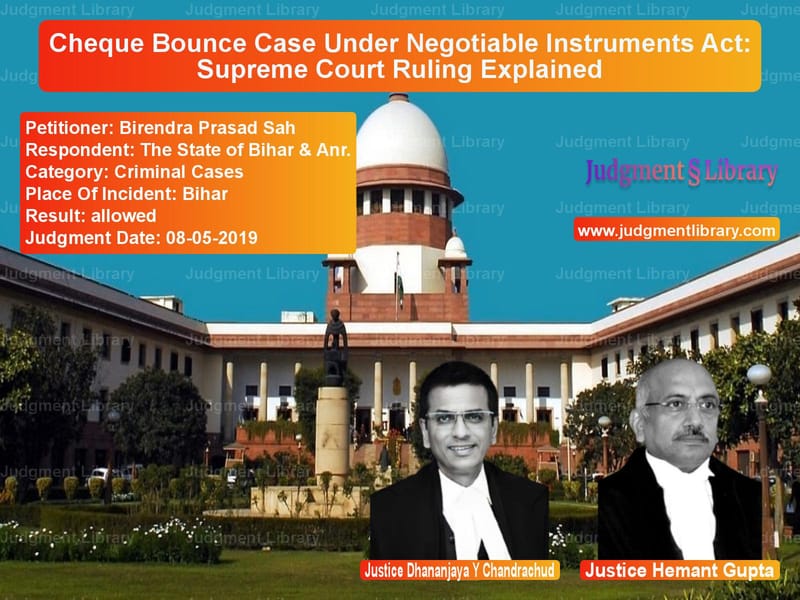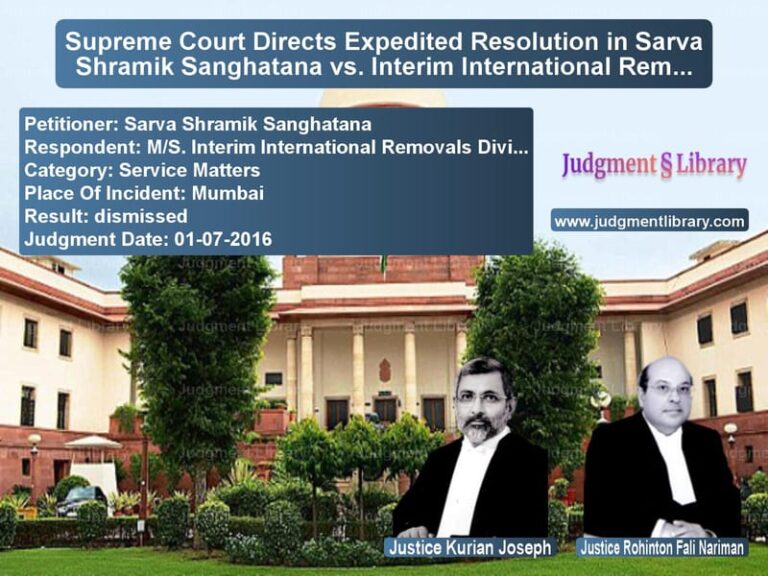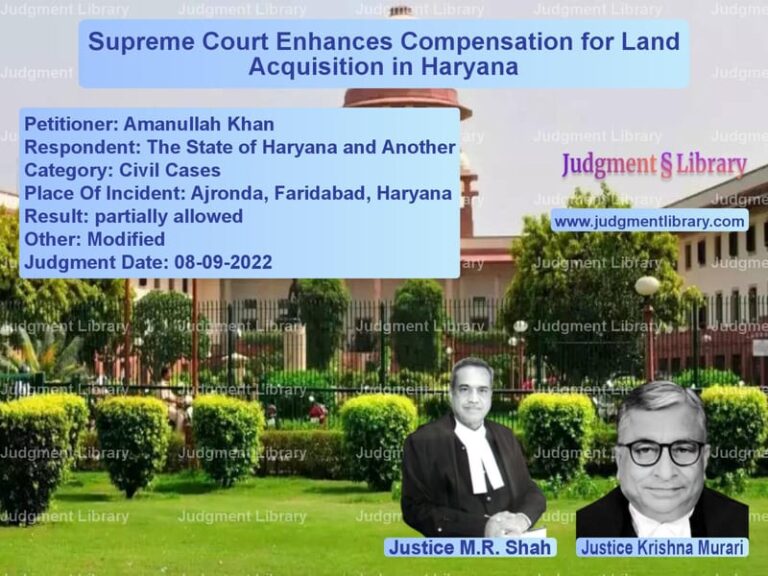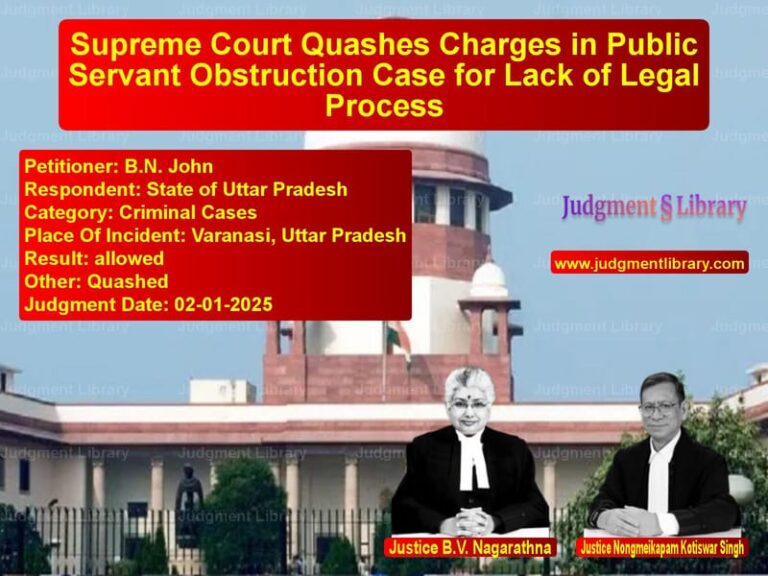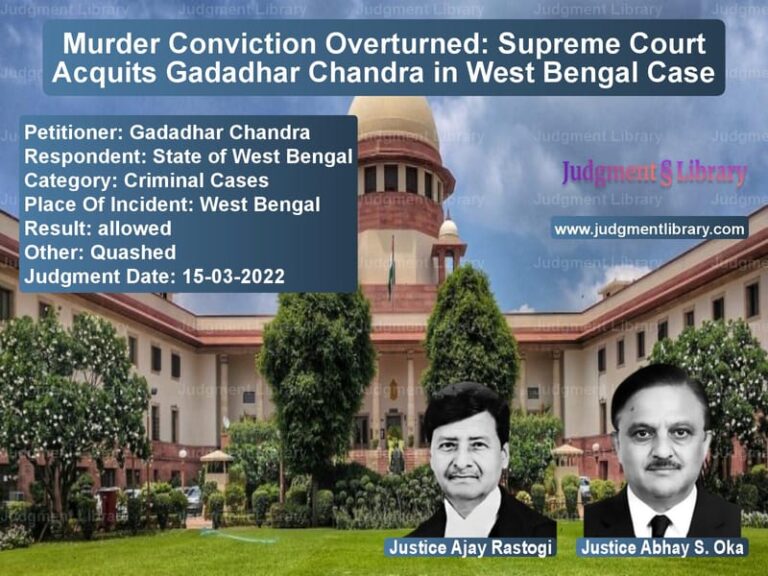Cheque Bounce Case Under Negotiable Instruments Act: Supreme Court Ruling Explained
The case in question revolves around a cheque bounce dispute under Section 138 of the Negotiable Instruments Act, 1881. The Supreme Court was called to adjudicate whether a second legal notice could be issued in case of non-receipt of service proof from the postal department and whether a delay in filing a complaint under Section 138 could be condoned under Section 142.
The appellant, Birendra Prasad Sah, had initiated proceedings after two cheques amounting to Rs. 36,00,000 and Rs. 13,00,000 were dishonored. However, the High Court of Judicature at Patna quashed the proceedings on grounds of delay in filing the complaint. The Supreme Court overturned this decision, reinstating the complaint for trial.
Background of the Case
The appellant issued two cheques drawn on the State Bank of India, which were dishonored on November 20, 2015. Upon receiving the dishonor memo on December 4, 2015, he issued a legal notice on December 31, 2015. However, due to lack of confirmation regarding its service, a second notice was issued on February 26, 2016. The respondent replied to the second notice on March 2, 2016. Subsequently, the appellant filed a complaint under Section 138 on May 11, 2016.
The Chief Judicial Magistrate (CJM) condoned the delay and issued summons to the respondent. The respondent challenged this in the Sessions Court, which upheld the CJM’s order. However, in a subsequent appeal to the High Court under Section 482 CrPC, the complaint was quashed, leading to the present appeal before the Supreme Court.
Key Legal Issues
- Whether a second legal notice can be issued under Section 138 of the Negotiable Instruments Act.
- Whether a delay in filing a complaint under Section 138 can be condoned under Section 142.
Arguments by the Petitioner (Birendra Prasad Sah)
- The first legal notice was sent within the statutory time frame, but no confirmation of its delivery was received.
- The second notice was issued due to lack of proof of service for the first notice.
- The delay in filing the complaint was condoned by the CJM, and the High Court erred in quashing the proceedings.
- The Supreme Court’s ruling in MSR Leathers v. S Palaniappan (2013) 1 SCC 177 allows successive notices to be issued.
Arguments by the Respondent (The State of Bihar & Anr.)
- The second legal notice was issued beyond 30 days of receiving the dishonor memo and cannot form the basis of the complaint.
- The complaint should have been filed based on the first notice, which would have made the filing beyond the statutory period.
- The CJM only condoned the delay arising after April 6, 2016, and not the entire delay.
Supreme Court’s Observations
The Supreme Court referred to Section 138 of the Negotiable Instruments Act, which mandates that a legal notice must be issued within 30 days of receiving information of dishonor. In this case, the first notice was sent on December 31, 2015, fulfilling the requirement.
The judgment emphasized:
“Both in paragraphs 7 and 8 of the complaint, the appellant indicated adequate and sufficient reasons for not being able to institute the complaint within the stipulated period. The CJM condoned the delay based on the cause shown.”
The Court also cited its earlier ruling in MSR Leathers, stating that multiple notices can be issued provided a fresh cause of action arises. However, in this case, the complaint was rightly based on the first notice.
Final Judgment
The Supreme Court ruled that the High Court’s order quashing the complaint was erroneous. It held that:
- The first legal notice, issued within 30 days, satisfied the legal requirement.
- The appellant had provided sufficient cause for the delay, which was accepted by the CJM.
- The High Court failed to consider the reasons provided for condoning the delay.
Accordingly, the Supreme Court allowed the appeal and reinstated the complaint for trial.
Implications of the Judgment
This ruling clarifies that while multiple notices may be issued, the first notice remains the primary basis for a Section 138 complaint. The judgment also affirms that delays in filing complaints under Section 138 can be condoned under Section 142 if sufficient cause is shown.
Petitioner Name: Birendra Prasad Sah.Respondent Name: The State of Bihar & Anr..Judgment By: Justice Dhananjaya Y Chandrachud, Justice Hemant Gupta.Place Of Incident: Bihar.Judgment Date: 08-05-2019.
Don’t miss out on the full details! Download the complete judgment in PDF format below and gain valuable insights instantly!
Download Judgment: Birendra Prasad Sah vs The State of Bihar & Supreme Court of India Judgment Dated 08-05-2019.pdf
Direct Downlaod Judgment: Direct downlaod this Judgment
See all petitions in Fraud and Forgery
See all petitions in Cheque Dishonour Cases
See all petitions in Judgment by Dhananjaya Y Chandrachud
See all petitions in Judgment by Hemant Gupta
See all petitions in allowed
See all petitions in supreme court of India judgments May 2019
See all petitions in 2019 judgments
See all posts in Criminal Cases Category
See all allowed petitions in Criminal Cases Category
See all Dismissed petitions in Criminal Cases Category
See all partially allowed petitions in Criminal Cases Category

